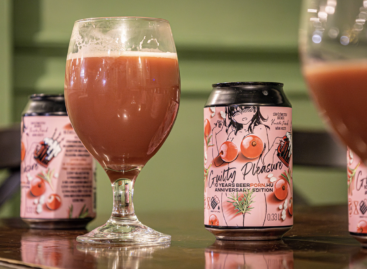New method to reduce alcohol consumption in Britain: tsmaller portions of beer
British researchers propose a new way to curb alcohol consumption: introducing smaller portions instead of the traditional pint-sized beer. In an experiment conducted in a dozen restaurants in England, the amount of the largest available draft beer was reduced to two-thirds of a pint, The Guardian reported. According to the results, this measure reduced the amount of beer sold by almost 10%.

Professor Dame Theresa Marteau, a researcher at the University of Cambridge, said even this modest reduction could make a significant contribution to reducing alcohol-related diseases, which kill thousands of people in the UK each year.
Thirteen restaurants participated in the experiment, and although wine sales increased slightly, the overall amount of alcohol consumed still decreased, and revenues fell by 5%. The introduction of smaller portions was met with mixed reactions by restaurateurs and guests, but according to researchers, this approach could be an important step in reducing alcohol consumption.
Related news
Hungarian beer magazine celebrates with rosé beer
🎧 Hallgasd a cikket: Lejátszás Szünet Folytatás Leállítás Nyelv: Auto…
Read more >Power in craft beer
🎧 Hallgasd a cikket: Lejátszás Szünet Folytatás Leállítás Nyelv: Auto…
Read more >Related news
GDP growth in OECD member countries slowed to 0.3 percent in the last quarter of last year
🎧 Hallgasd a cikket: Lejátszás Szünet Folytatás Leállítás Nyelv: Auto…
Read more >Change in Rossmann Hungary’s leadership: Kornél Németh decided to move towards new challenges in 2026
🎧 Hallgasd a cikket: Lejátszás Szünet Folytatás Leállítás Nyelv: Auto…
Read more >








